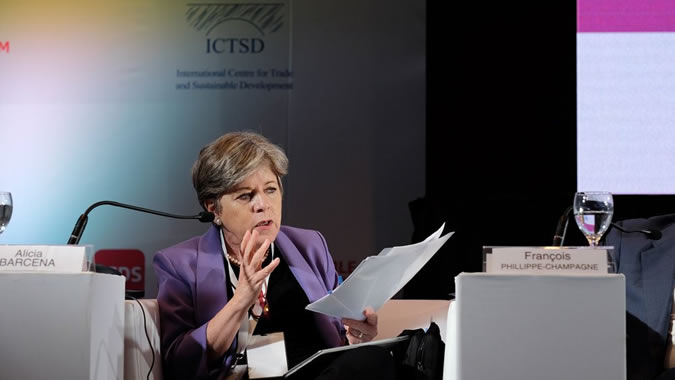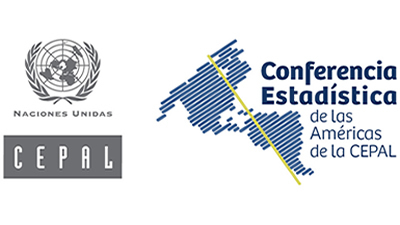Alicia Bárcena Called for Breaking the Statistical Silence on Women’s Participation in Trade, Production and Value Chains
Work area(s)
In the framework of the eleventh WTO Ministerial Conference taking place in Argentina, ECLAC’s Executive Secretary participated in an event addressing the relationship between trade and gender equality.

Alicia Bárcena, Executive Secretary of the Economic Commission for Latin America and the Caribbean (ECLAC), urged the region’s countries to break the statistical silence on women’s participation in trade, production and value chains in order to create policies for tearing down the barriers preventing women from taking part in the labor market on equal footing with men. She specifically proposed stronger integration of this issue in the work done by the Statistical Conference of the Americas (SCA), a subsidiary body of ECLAC.
Bárcena participated in the Making Trade Work for Gender Equality: From Evidence to Action event, organized by the United Nations Conference on Trade and Development (UNCTAD), the International Centre for Trade and Sustainable Development (ICTSD) and the governments of Finland and Sweden, in the framework of the eleventh WTO Ministerial Conference (MC11) being held through Wednesday, December 13 in Argentina’s capital.
Also participating in the event were François-Philippe Champagne, Canada’s Minister of International Trade; Oscar Stenström, State Secretary to the Minister for EU Affairs and Trade, Mrs. Ann Linde; Terhi Hakala, Permanent Representative of Finland to the United Nations in Geneva; Ambassador Aníbal Cabral; Isabelle Durant, UNCTAD Deputy Secretary-General; and Simonetta Zarrilli, Chief of that institution’s Trade, Gender and Development Programme. The discussion was moderated by Ricardo Meléndez-Ortiz, Chief Executive of ICTSD.
ECLAC’s work on gender equality, Bárcena explained, is focused on the three dimensions of women’s autonomy: physical, economic and in decision-making.
On the matter of economic autonomy, available statistics indicate that, despite the fact that women have more of years of schooling than men on average, their rate of employment in the labor market is below that of their male peers, they receive lower wages under similar conditions and work mostly in low-productivity sectors, the senior United Nations official sustained.
“Women are much better prepared to enter the labor market today, but they face an important social barrier: the care economy forces them to stay at home caring for dependents, children, older persons and disabled persons, without pay or social protection,” the Executive Secretary said, calling on countries to “free up women’s time with policies of co-responsibility in matters of caregiving.”
“The productive structure of Latin America and the Caribbean – intensive in extractive activities – also conspires against greater participation by women in the workforce,” she underscored.
During the event, Bárcena also welcomed the Joint Declaration on Trade and Women’s Economic Empowerment that will be signed during the WTO Ministerial Conference in Buenos Aires. Among other precedents, the declaration is based on Sustainable Development Goal 5 of the 2030 Agenda for Sustainable Development, which seeks to achieve gender equality and the empowerment of all women and girls.
“All stakeholders involved should put ourselves at the service of this declaration,” Bárcena said. In her opinion, “trade agreements should guarantee, for instance, that women and men are treated equally when it comes to salaries,” among other matters.
Related event

Country(ies)
- Latin America and the Caribbean
